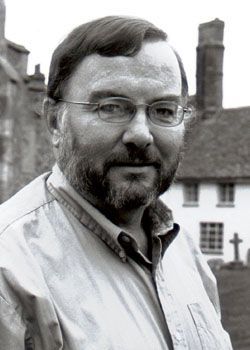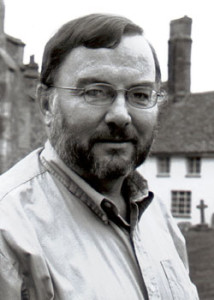Would John Adams have called John Winthrop a “Founding Father?”


When a series of long discussions with my editor led to the title John Winthrop: America’s Forgotten Founding Father, I was initially concerned for two reasons. On the one hand, I certainly had not “forgotten” John Winthrop, and I doubt that his name would be unfamiliar to any readers of Common-Place, many of whom were first introduced to colonial New England by reading Edmund S. Morgan’s brilliant short biography of Winthrop, The Puritan Dilemma. But the more I had occasion to mention my book to friends and acquaintances, colleagues in other disciplines, and even historians with other specialties, I became truly surprised at how few people recognized Winthrop’s name. Members of my own family, of course, were an exception to this pattern, having been dragged to what they considered all too many historical sites in England, Ireland, and America connected with the career of the Massachusetts leader. Perhaps John Winthrop had indeed been forgotten.
But was he indeed a Founding Father? Or what, at any rate, did the Founders themselves think? The issue is more complex. There is little evidence that the great men of Virginia had ever heard of John Winthrop, far less given his career and significance any serious thought. But John Adams did recognize the importance of the early governor of the commonwealth, even to the point of using his name as a pseudonym for some of his writings in the 1760s.
Adams was very familiar with Winthrop’s story, and with the continuing role that Winthrop had played and continued to play in the history of Massachusetts. He had studied at Harvard under the Hollis Professor of Mathematics and Natural Philosophy, John Winthrop (1714-79), the distant descendant of “my” John Winthrop. In the decade after the Stamp Act in 1765, this later John Winthrop, a member of the colony’s provincial congress and then of the Revolutionary council, became noted for his opposition to British policies, and, in time, as a proponent of Independence. John Adams corresponded with his old professor and recommended Winthrop to George Washington as one of local men “whose judgment and integrity may be most relied on” when the latter departed to take command of the troops near Boston. But Adams was also well versed in the story of Professor Winthrop’s ancestor. Though the first publication of Winthrop’s journal from the 1630s and 1640s did not appear until Noah Webster’s edition in 1790, Adams would have been familiar with Winthrop’s contributions from reading Cotton Mather’s Magnalia Christi Americana (1702) and Thomas Prince’s Chronological History of New England (1736). Both of those authors had access to the Winthrop manuscripts and drew on them heavily in their accounts, and both presented the governor in highly favorable terms, Mather in particular extolling him as the “American Nehemiah.” Despite Governor Thomas Hutchinson’s support of British policies, his History of the Colony of Massachusetts Bay (1764) was another source for learning of the province’s founding generation.
Adams’s careful perusal of the records of the Bay Colony provided further insight into Winthrop’s contributions, and he drew on all this in his defense of American liberties. In 1767 he criticized the colony’s Governor Francis Bernard in two letters in the Boston Gazette presented as communications from “Governor Winthrop to Governor Bradford.” Clearly he felt that invoking the name of Winthrop on behalf of the patriot cause would reinforce the points he wished to make.
On the eve of the fighting in 1775, Adams again invoked Winthrop, this time in one of his Novanglus essays, reviewing the history of the Bay’s original charter and the determination of Winthrop and his fellow leaders to preserve their liberties. Seeking to dismiss the charge that those who opposed tyranny were rabble in an early age and rabble at the time he was writing, Adams stressed the fact that Isaac Johnson, Winthrop, and Thomas Dudley–all early leaders of the Massachusetts colonial experiment–were “not the rascally Rabble of Romulus, but Gentlemen of Family, Fortune, Education, and Figure.” In 1780 Adams again found cause to extol Winthrop and the other “first Planters of New England” as great men who struggled with the dangers of the wilderness to enjoy “superior liberty for themselves, and the prospect of it for their children.”
Adams identified “the Towns, Militia, Schools and Churches as the four Causes of the Growth and Defence of N. England” from which the “Virtues and Talents of the People are there formed,” and credited the founding generation of “Norton, Cotton, Wilson, Winthrop, Winslow, [and] Saltonstall” for establishing these institutions. Deflected from a career in the ministry by his distaste for the heated religious quarrels of his own day, Adams clearly emphasized the social and political accomplishments of Winthrop and his peers over their sectarian goals. Yet he was proud of Massachusetts and its history, and viewed Winthrop and his peers as the colony’s founding fathers. Of course, this was the view from Braintree. Beyond New England, Winthrop’s story was less well known. Only after the success of the Revolution, when New Englanders such as George Bancroft began to write histories of the new nation, did Americans outside Massachusetts learn that they too owed much to the Puritan founders.
If John Adams recognized Winthrop as a Founding Father, and was joined in that judgment by a growing number of Americans in the nineteenth century, how and when did we manage to forget Winthrop? That tale is part of the broader story of how the public came to reject the Puritan past. Beginning in the late nineteenth century and continuing into the twentieth, the writings of Hawthorne and his peers, historical studies such as those written by John Adams’s descendant Charles Francis Adams, and popular commentary by men such as H. L. Mencken highlighted (or exaggerated) negative aspects of the Puritans. The builders of the Bay Colony were redefined as bigots, prudes, and killjoys. The kindly Pilgrims and the noble dissidents who had challenged the Puritans–such as Anne Hutchinson and Roger Williams–replaced the Winthrops and Endecotts in public esteem. John Winthrop and his peers became skeletons in the national closet rather than figures to be given a place of honor. This was literally so in the case of Winthrop, whose statue in Boston’s Scollay Square was removed in 1904 during subway construction and relegated to a wandering existence until it finally resurfaced off the tourist path in front of the First and Second Church. Meanwhile, room was found for new statues of Anne Hutchinson and Mary Dyer in front of the Boston State House on Beacon Hill. Later, scholarly revisions of this overly negative image by Samuel Eliot Morison, Perry Miller, and Edmund Morgan never achieved the extensive readership needed to revise the popular cultural dismissal of the Puritans. They, along with many of those who created the unique regional cultures of seventeenth-century America, have remained neglected in favor of remembering those who shaped the nation.
John Adams was not so shortsighted. Acknowledging his own flaws, he did not expect perfection in others and was not put off by those aspects of the Puritan fathers which he found distasteful, giving them credit for the shaping of New England. Just as later generations would be inspired by Adams’s own story, he was inspired by the accomplishments of the first New Englanders. I don’t doubt for a minute that he would have been pleased to share the title of Founder with John Winthrop.
Further Reading:
John Adams’s essays signed “John Winthrop” are to be found in Charles Francis Adams, ed., The Works of John Adams (1856), vol. 3. Other examples of Adams’s references to Winthrop and use of the colonial governor’s name are to be found in modern, multivolume editions of the Adams papers. Valuable insight into how even historians of early America have focused on the eighteenth century as opposed to the first decades of colonization is to be found in Joyce Chaplin’s “Expansion and Exceptionalism in Early American History,” Journal of American History (March 2003). Though he is treated in other works, there have only been two earlier biographies of John Winthrop: Robert Charles Winthrop’s Life and Letters of John Winthrop (1864-67) and Edmund S. Morgan’s brief but insightful study, Puritan Dilemma, The Story of John Winthrop (Boston, 1958). The story in Winthrop’s own words can be found in the first three volumes of The Winthrop Papers published by the Massachusetts Historical Society (Boston, 1929, 1931, 1943) and the new edition of The Journal of John Winthrop, 1630-1649 (Cambridge, Mass., 1996), edited by Richard Dunn, James Savage, and Laetitia Yeandle.
This article first appeared in issue 4.3 (April, 2004).
Common-place asks Francis J. Bremer, professor of history at Millersville University and the author of John Winthrop: America’s Forgotten Founding Father (New York, 2003), whether John Adams would have called John Winthrop a Founding Father.